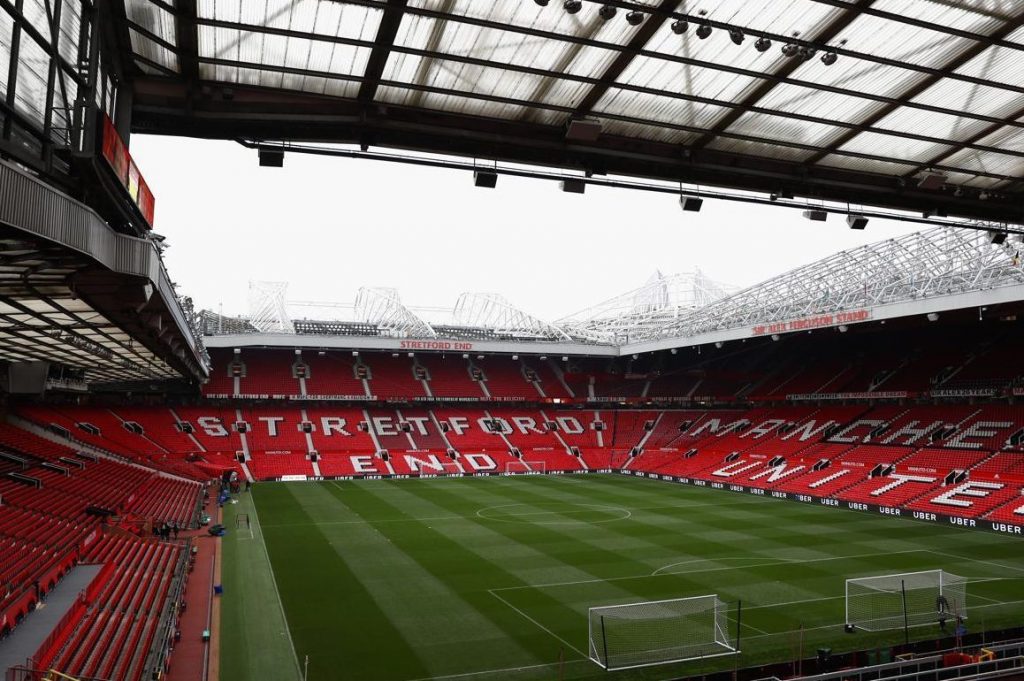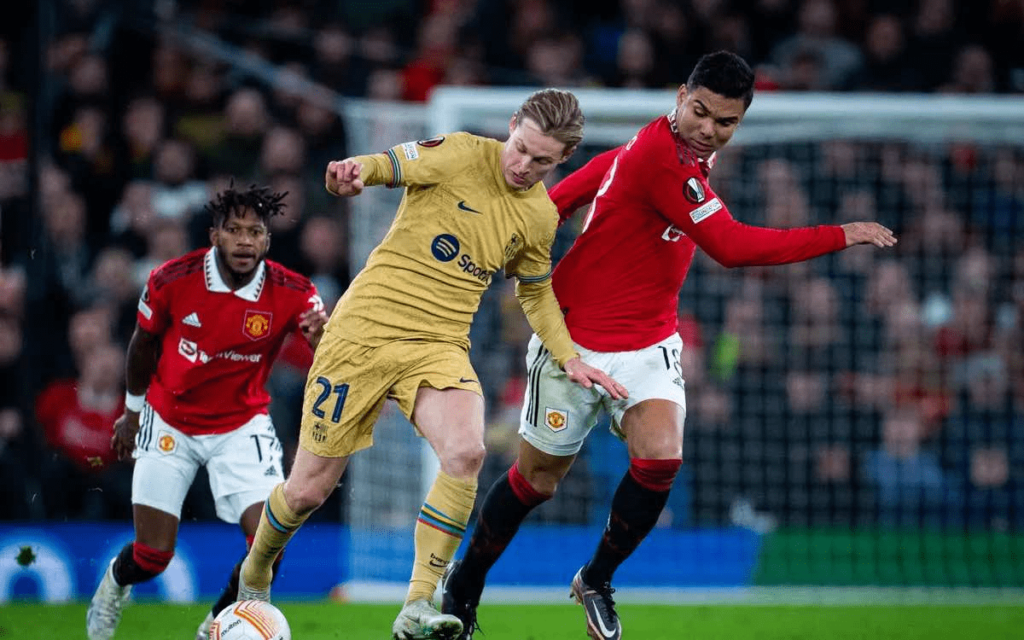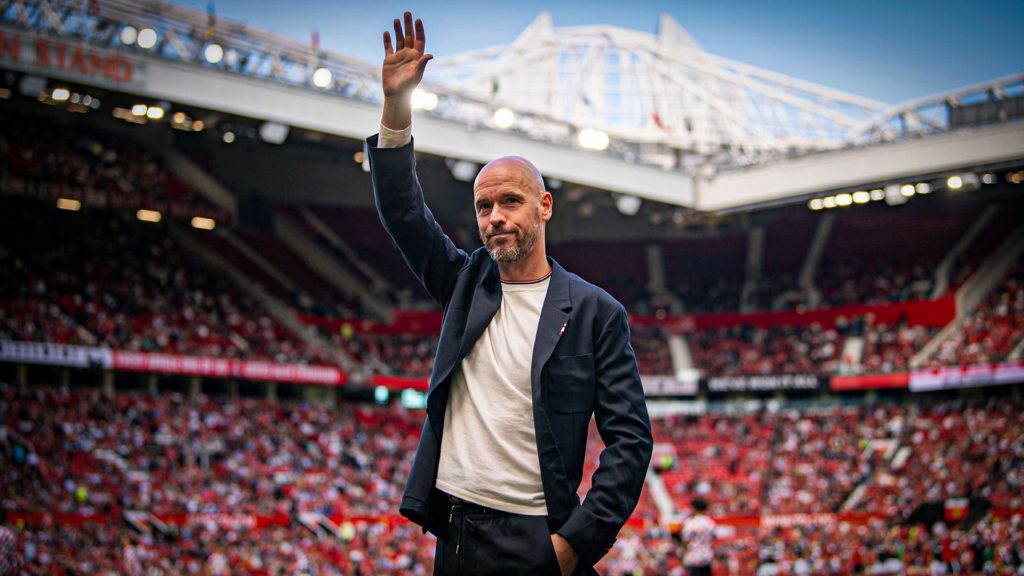Due to Manchester United’s violation of the Financial Fair Play (FFP) regulations, UEFA has fined them €300,000 (£257,000; $337,000).
The Old Trafford club recorded a “minor break-even deficit” during the previous season’s three-year monitoring period, which examined United’s financial outcomes between 2019 and 2022, UEFA said on Friday. A new structure for UEFA’s FFP laws has now taken effect, although the sanction was based on an older version of those rules.

United acknowledged their penalties for the small technical infraction of the prior regulations in a club statement. “This was owing to a change in how UEFA handled COVID-19 losses for the 2022 reporting period, which allowed us to record just €15 million of the €281 million in lost income as part of the FFP calculation, according to the statement.”
“Since the epidemic, the clubs’ income has strongly rebounded and is anticipated to reach a record level in the current fiscal year. The club is still in favour of measures that encourage financial transparency and sustainability in both local and European sport.”
Because they are conscious of their adherence with both UEFA’s FFP standards and the Premier League’s Profitability and Sustainability guidelines, United has taken care not to spend recklessly during this summer’s transfer window.
How did United transgress the law?
United violated UEFA’s “break-even” rule, which is meant to stop teams from overspending while playing in European competition.
According to UEFA regulations, teams are only permitted to lose €5 million during each three-year monitoring period; however, under the previous version of the regulations, clubs were permitted to lose up to €30 million over the same amount of time provided the difference was paid by an owner.
The Glazer family, United’s owners, have never before paid for club losses out of their own funds, hence United has always been required to adhere to UEFA’s lower €5 million cap. After the 2021–22 campaign, when United posted a pre-tax loss of €197 million in their full-year accounts, their FFP compliance became a problem. The club claims that in addition to the €234 million in pandemic-related losses from the 2019–2020 and 2020–21 seasons, the €47 million in losses from Covid–19 during the 2021–22 season.

To assist teams in coping with the pandemic’s consequences, UEFA made changes to its FFP regulations. The 2019–20 and 2020–21 seasons were combined into one, and clubs were permitted to recoup any losses from the Covid–19 epidemic from these seasons.
United claims that their violation was caused by an unanticipated change in how UEFA handled Covid-19 losses during the transition to its new FFP guidelines. As a result, just €15 million of the €281 million in losses over the reporting period could be claimed back, according to United.
The club claims that they would have easily crossed the break-even point in the absence of this unanticipated shift. United cleared the Premier League Profit and Sustainability (P&S) test, even though P&S’s maximum loss ceiling is greater at £15 million (€17.5 million), and both tests are tied to the same three-year monitoring period.
Are United at risk of violating the new UEFA regulations?
United’s worries are lessened by UEFA’s new FFP regulations, which do not include their losses in 2021–22 towards the next monitoring term.
The new “football earnings” regulation now includes the break-even test, and this season, teams competing in European play only need to file their financial statements for the fiscal year 2022–2023.
Clubs will begin receiving assessments once more the following season, and the monitoring term will be based on the 2022–2023 and 2023–2024 club accounts. United will still be obligated to fulfil the lower €5 million maximum over three years, pending a change of heart on the side of the Glazer family or a change of ownership, so they must be careful with their expenditure to keep under UEFA’s restrictions.

Along with the “football earnings” break-even point rule, a new “squad cost” regulation has also been implemented. By 2025–2026, teams will be restricted to investing no more than 70% of their earnings and profits from player sales in their male players and head coach.
However, this will be implemented gradually, and the squad cost barrier for this season is 90%. United anticipates staying well inside that range.
What about the FFP test used by the Premier League?
United must continue to exercise caution in light of the Premier League’s P&S regulations, which permit teams to incur a £15 million deficit during each of the three monitoring periods that are not supported by ownership money. Although they passed the P&S exam at the conclusion of the 2021–22 season, it is unknown if they also passed the test from the previous season. Based on an average of 2019–20, 2020–21, 2021–22, and 2022–23, the three-year timeframe was chosen.
However, the P&S test for this season will still consider the loss from 2021–22 even if it does not take into account the two Covid–19-affected seasons as part of the three-year monitoring period. For this reason, United must be prudent with their expenditure this summer.
United will need to use ownership funds to make up any losses if they go over the Premier League’s £15 million cap during either the test from the previous season or the test from this season.
If they don’t, the Premier League’s board may limit their spending on transfers and budgets to make sure they fulfil their financial commitments.
What must United do to adhere to the regulations?
Although some fans have questioned if United’s caution with their FFP compliance is just another instance of Glazer saving pennies, this €300,000 punishment from UEFA proves that the team is treading carefully when it comes to adhering to these rules.
United insists that the fine won’t have an impact on their ability to conduct transfer business this summer by pointing out that it refers to a prior infringement and is based on financial outcomes until the end of 2021–22.
The main decision-makers at Old Trafford have the option of selling players this summer to aid with FFP compliance. This summer, United is aggressively looking to sell a number of players on Erik ten Hag’s first-team roster, and they are open to bids for more players as well.

Selling Scott McTominay or Harry Maguire for a sum that reflects their market value would significantly alter United’s FFP calculations. But some are closer to the door leading out.
While moving on Eric Bailly and Alex Telles is considered as a priority, Fulham and Nottingham Forest are also interested in Fred and Dean Henderson. Anthony Elanga, who is anticipated to go this summer, and Hannibal, who United may keep but is open to bids for, are two prospective departures considered as tests of United’s sales prowess.
Since Elanga is an academy graduate and there isn’t a transfer price that has been amortised in the accounting records, any sale would be pure profit in FFP terms. McTominay would be similarly affected. Only Zidane Iqbal and Ethan Laird, who cost a combined £1.6 million, have already departed Old Trafford this summer.







